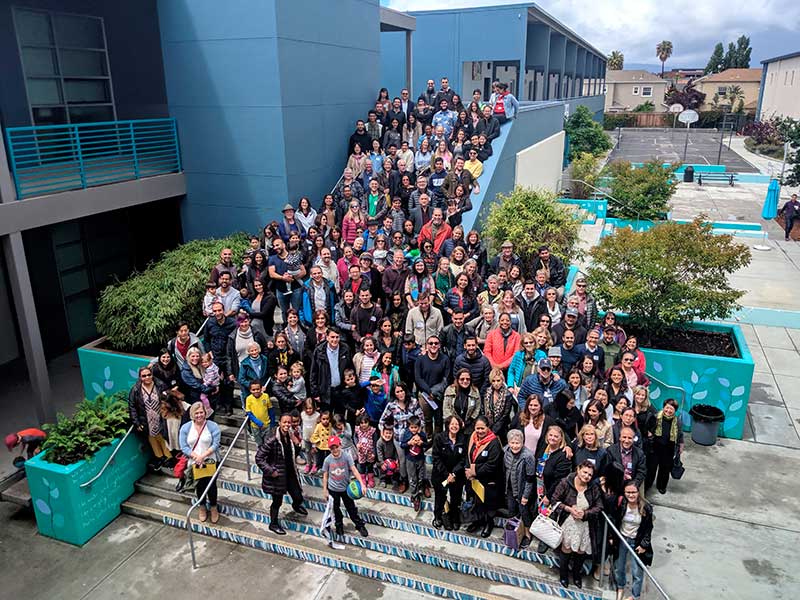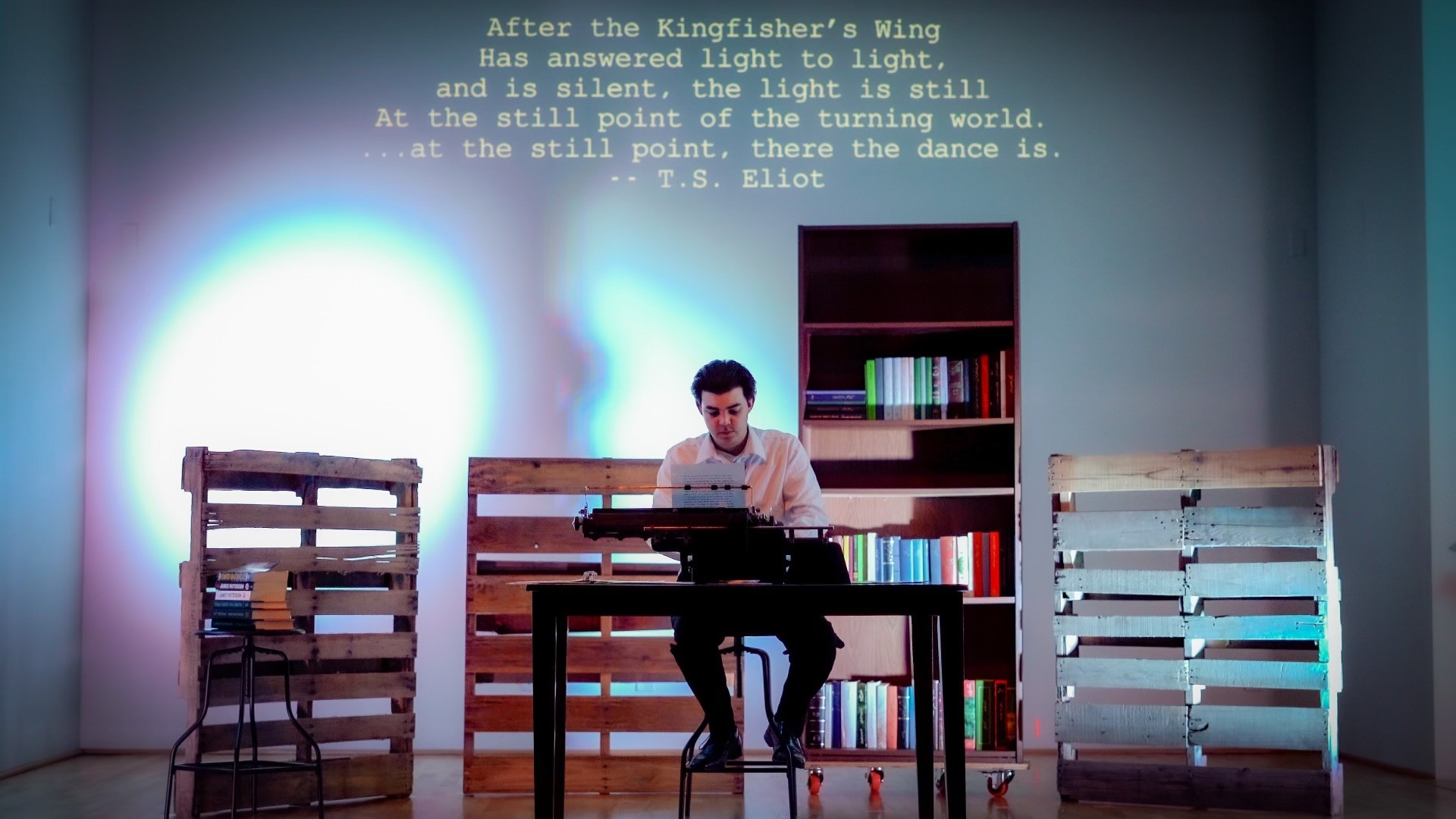
Utah Youth Conference
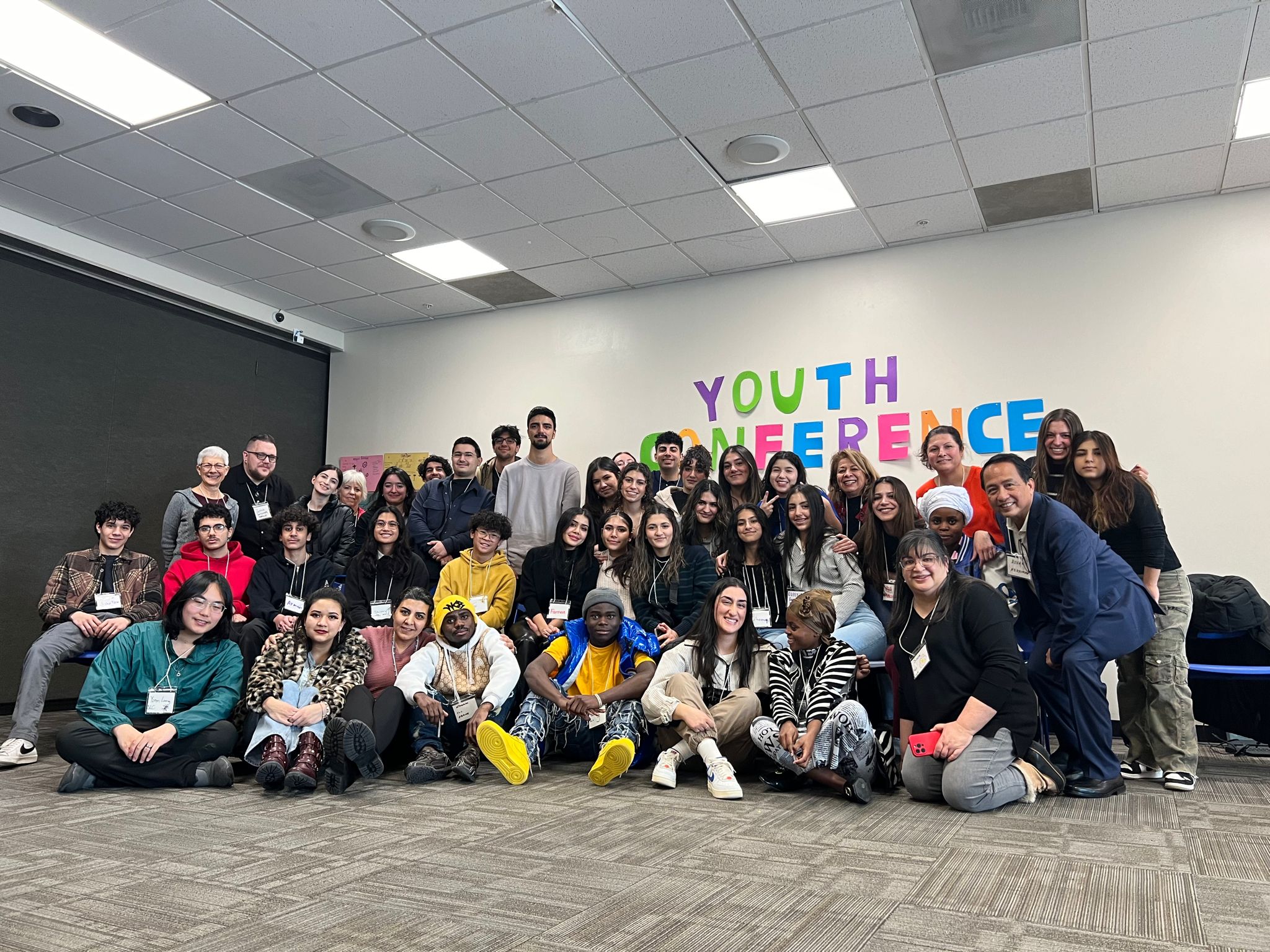
Outside: Icy blizzard
Inside: Warmth of new-found connections
Inclement snowy weather delayed the arrival of many participants to a subregional youth conference near Salt Lake City, Utah, on January 13, but almost every one of the 50 youth and young adults who registered braved the weather to attend.
Most of the youth had never been to a Bahá’í conference before. “We found so many were born into Bahá’í families, but were never connected,” says Rolando Maddela of Herriman, Utah. Maddela handled the meeting logistics. “Bringing them together on MLK weekend was a great thing.”
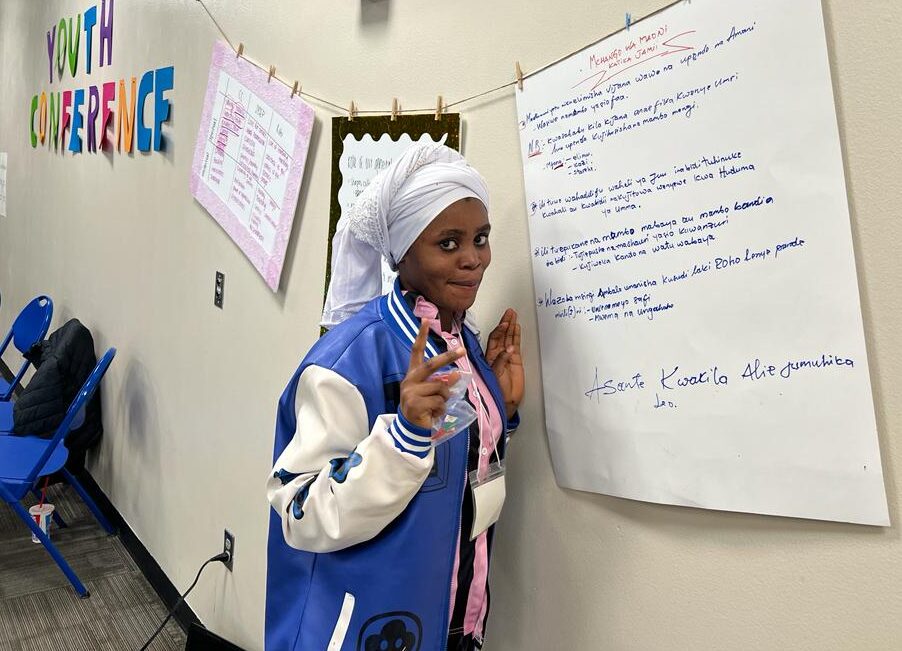
Maddela says that many of the youth were identified during home visits in the Four Corners region and facilitators had most success inviting them via texts.
He says the youth didn’t know what to expect. A balance of prayers, icebreakers, songs, study, meaningful conversations, artistic reflections and games uplifted spirits of the conference goers throughout the day. “And these were not like any games they knew,” he says. “They were not competitive. They were participatory and inclusive. They learned a lot and were surprised it wasn’t just a boring meeting.”
The conference included some young Bahá’ís from Tanzania who have been living in the area for only a few months. The coordinators took care to create a welcoming environment for them.
“At the beginning of the conference the youth created norms that included an explicit intention to meet and get to know new people,” says Deborah Conow, a conference coordinator from Orem, Utah.
“Communication is a challenge for us as we do not speak Swahili and have to rely on our phones and translation apps to communicate, which cannot reliably handle complex questions or statements,” she says.
Conow says that most of the icebreakers and games could be played by anyone regardless of language. For example, a game of musical chairs provided a bit of movement and fun. “Halfway through, one Tanzanian friend even provided the soundtrack from his phone,” she says.
Break-out groups read prepared conference materials: “The Period of Youth” and “Fostering Mutual Support and Assistance.” Some small groups also covered “Contributing to the Advancement of Civilization.” Conow says that special effort was made to procure a copy of the conference material in Swahili and to include a small group space for the Swahili-speaking friends for artistic reflection.
About 10 adults provided support for registration, food, child care and transportation. They took turns engaging the children with games and music. “We also set aside a child-friendly space with a play rug, toys, ukuleles and books,” Conow says.
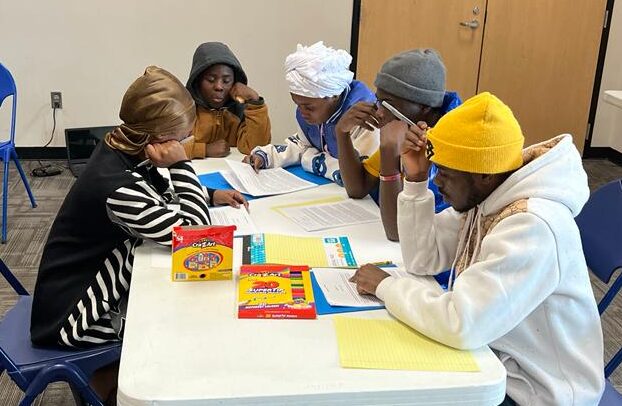
One of the young adult facilitators, Shiva Bahamin, met the Tanzanian friends for the first time at the conference. She worked with them during a break to learn two Baha’i songs in Swahili, make posters with the lyrics and teach the songs to the whole group.
“They were hesitant to perform it at first,” Shiva says, “but when the time came, they stepped up and did amazing.” One song was about love for Bahá’u’lláh. “They would sing someone’s name after a few verses, asking, ‘Shiva, what do you love about Baha’u’llah?’ It was such a lovely performance!
Editor’s Note: We reached out to some of the Tanzanian participants in order to include their voices in this story, but the language differences proved to be a barrier. However, one comment about the conference came through loud and clear: “I like it!”


